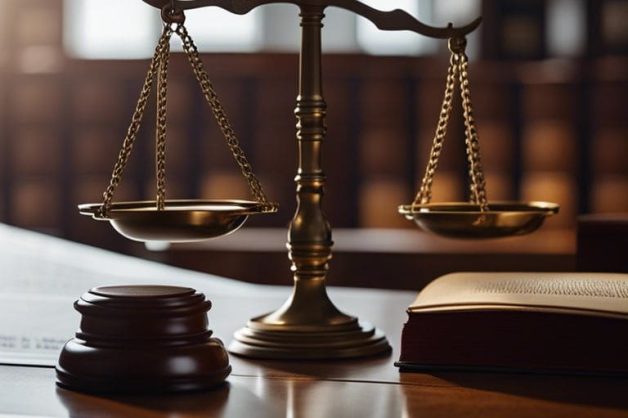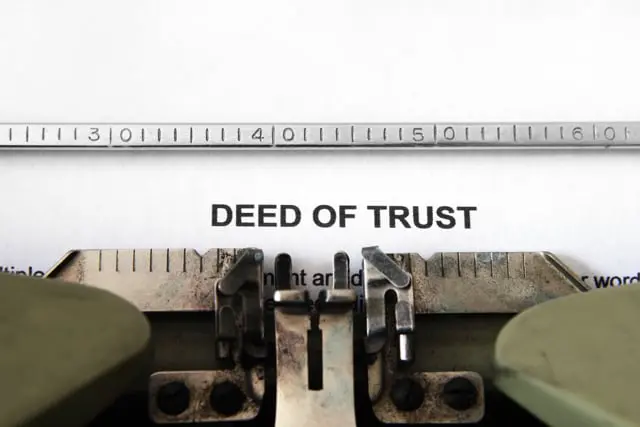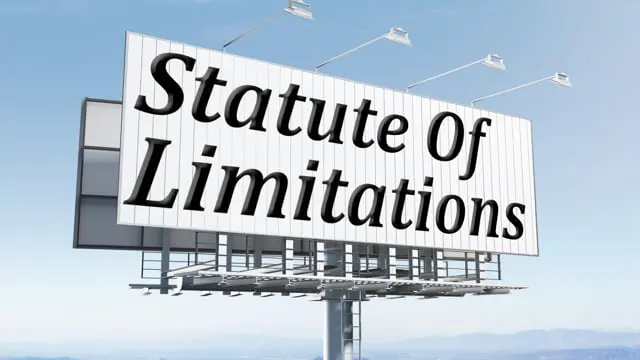En right to a fair trial is a cornerstone of justice systems worldwide, ensuring that individuals accused of crimes are treated justly and equitably. This fundamental right protects individuals from arbitrary punishment and ensures that legal proceedings are conducted in a manner that respects human dignity and the rule of law. In this article, we will delve into the various aspects of the right to a fair trial, exploring its origins, key components, and its importance in both derecho civil y derecho penal contexts.
The Origins of the Right to a Fair Trial
The right to a fair trial has deep historical roots, tracing back to ancient civilizations where the concepts of justice and equity were first formalized. In the modern era, this right is enshrined in numerous international legal instruments, including the Universal Declaration of Human Rights and the International Covenant on Civil and Political Rights. These documents establish the right to a fair trial as a fundamental human right, binding on all signatory states.
One of the most significant historical developments in the evolution of fair trial rights was the adoption of the Magna Carta in 1215. This seminal document, often considered the foundation of modern legal systems, emphasized the importance of due process and the right to a fair and public hearing. Over the centuries, these principles have been integrated into various national legal systems, including the United States Constitution, which guarantees the right to a fair trial through the Sixth Amendment.
Key Components of a Fair Trial
A fair trial encompasses several essential components designed to ensure justice and impartiality in legal proceedings. These components include the right to a public hearing, the right to be presumed innocent until proven guilty, the right to legal representation, and the right to a competent, independent, and impartial tribunal.
1. Right to a Public Hearing
The right to a public hearing ensures transparency in the legal process, allowing the public and the media to observe and scrutinize court proceedings. This transparency is crucial in maintaining public confidence in the justice system and deterring potential abuses of power. Public hearings also promote accountability and help to ensure that legal proceedings are conducted fairly and without bias.
In addition to promoting transparency, public hearings can also serve educational purposes, allowing citizens to understand better how the judicial system operates. By witnessing trials, the public can learn about the legal process, the role of various court officials, and the importance of fair procedures. This understanding can foster greater respect for the rule of law and encourage civic engagement.
2. Presumption of Innocence
The presumption of innocence is a fundamental principle of derecho penal, stating that an individual is considered innocent until proven guilty. This principle places the burden of proof on the prosecution, requiring them to present sufficient evidence to establish guilt beyond a reasonable doubt. The presumption of innocence protects individuals from wrongful convictions and ensures that no one is punished without a fair and thorough examination of the evidence.
Historically, the presumption of innocence has been a critical safeguard against the abuse of state power. In societies where this principle is not upheld, individuals can be subjected to arbitrary detention, torture, and even execution without proper legal procedures. By maintaining the presumption of innocence, legal systems can protect individual freedoms and uphold human rights.
3. Right to Legal Representation
The right to legal representation ensures that individuals accused of crimes have access to professional legal assistance. This right is vital in ensuring that defendants can effectively navigate the complexities of the legal system and present a robust defense. In many jurisdictions, individuals who cannot afford to hire a lawyer are entitled to free legal aid, ensuring that the right to legal representation is accessible to all, regardless of economic status.
Effective legal representation is crucial for ensuring that defendants’ rights are protected throughout the trial process. Lawyers play a vital role in gathering evidence, cross-examining witnesses, and presenting legal arguments. Without competent legal representation, defendants may be unable to challenge the prosecution’s case effectively, leading to unjust convictions.
4. Independent and Impartial Tribunal
An independent and impartial tribunal is essential for a fair trial. Judges and jurors must be free from bias and must not have any personal interest in the outcome of the case. This impartiality ensures that decisions are based solely on the evidence presented and the law, without any undue influence or prejudice. The independence of the judiciary from other branches of government is also crucial in maintaining the integrity of the legal system.
The concept of judicial independence is foundational to democratic societies. Without an independent judiciary, courts may be subject to political pressures, undermining their ability to administer justice impartially. Ensuring that judges are appointed and operate without undue influence is critical for maintaining public trust in the legal system.
Fair Trial in Civil Law vs. Criminal Law
While the right to a juicio justo is essential in both civil and derecho penal contexts, its application can vary significantly between these two areas. Understanding these differences is crucial for appreciating the full scope of this fundamental right.
Fair Trial in Criminal Law
In criminal law, the right to a fair trial is particularly critical given the potential consequences of criminal convictions, which can include imprisonment, fines, and even capital punishment in some jurisdictions. The stakes are incredibly high, making the protections afforded by the right to a fair trial all the more vital.
1. Right to Remain Silent
One key aspect of a fair trial in criminal law is the right to remain silent, which protects individuals from self-incrimination. This right allows defendants to avoid making statements that could be used against them in court, ensuring that the prosecution must rely on independent evidence to prove guilt.
The right to remain silent is particularly important in protecting individuals from coercive interrogation techniques. In the absence of this right, law enforcement officials might use intimidation or other improper methods to elicit confessions. By upholding the right to remain silent, legal systems can help to ensure that evidence obtained through coercion is not admissible in court.
2. Right to Cross-Examine Witnesses
Another critical component of a fair trial in criminal law is the right to cross-examine witnesses. This right allows the defense to challenge the credibility and reliability of the prosecution’s evidence, ensuring that the court considers all aspects of the case before reaching a verdict.
Cross-examination is a powerful tool for revealing inconsistencies in witness testimony and uncovering potential biases. By rigorously testing the prosecution’s evidence, the defense can help to ensure that only reliable and credible evidence is used to determine guilt or innocence.
Fair Trial in Civil Law
In civil law, the right to a fair trial is equally important, though the stakes often involve financial penalties or specific performance rather than criminal sanctions. Ensuring fairness in civil proceedings helps to maintain trust in the legal system and promotes justice in disputes between individuals, businesses, and government entities.
1. Equality of Arms
A key principle in civil law is the concept of “equality of arms,” which ensures that both parties in a dispute have an equal opportunity to present their case. This principle requires that both sides have access to the same legal resources and that neither party is disadvantaged by procedural rules or judicial biases.
In civil cases, equality of arms is essential for ensuring that both parties can effectively argue their positions. This principle is particularly important in cases where one party has significantly more resources than the other, such as disputes between large corporations and individual consumers. By ensuring procedural fairness, courts can help to level the playing field and promote justice.
2. Right to Appeal
In both civil and criminal law, the right to appeal is a critical aspect of a fair trial. This right allows individuals to seek a review of the decision made by the original court, ensuring that errors or injustices can be corrected. The appellate process provides an additional layer of protection for the rights of individuals, promoting confidence in the fairness and accuracy of the legal system.
The right to appeal is an essential safeguard against judicial errors and misconduct. By allowing higher courts to review decisions, the legal system can ensure that justice is upheld and that individuals have recourse if they believe their trial was unfair.
Challenges to the Right to a Fair Trial
Despite the robust legal frameworks designed to protect the right to a fair trial, numerous challenges can undermine its implementation. These challenges can arise from systemic issues within the legal system, external pressures, or specific circumstances related to individual cases.
1. Judicial Corruption and Bias
One of the most significant threats to a fair trial is judicial corruption and bias. Judges and jurors must remain impartial and free from any external influence to ensure that their decisions are based solely on the evidence and the law. Corruption and bias can undermine the entire judicial process, leading to unjust outcomes and eroding public trust in the legal system.
Addressing judicial corruption requires strong institutional safeguards, including transparent appointment processes, robust oversight mechanisms, and effective accountability measures. By promoting judicial integrity, legal systems can help to ensure that trials are conducted fairly and impartially.
2. Access to Legal Representation
Another major challenge is ensuring equal access to representación legal. While many jurisdictions provide free legal aid to those who cannot afford a lawyer, the quality and availability of these services can vary significantly. Inadequate legal representation can severely disadvantage defendants, particularly in complex cases requiring specialized legal knowledge.
Improving access to legal representation requires investment in legal aid programs, support for public defender offices, and initiatives to encourage pro bono work by private attorneys. By ensuring that all individuals have access to competent legal representation, legal systems can help to protect the right to a fair trial.
3. Media Influence and Public Opinion
Intense media scrutiny can create pre-trial publicity that influences potential jurors, making it difficult to ensure an impartial jury. Courts must carefully manage these influences to protect the integrity of the trial process. In some cases, judges may issue gag orders, restrict media access to certain aspects of the trial, or sequester juries to minimize the impact of external opinions on the trial’s outcome.
High-profile cases often attract significant media attention, which can lead to the dissemination of biased or incomplete information. This coverage can shape public perception and create a hostile environment for the defendant. It is essential for courts to balance the public’s right to information with the defendant’s right to a fair trial. Measures such as careful jury selection processes and instructions to jurors to avoid media coverage can help mitigate these challenges.
4. Systemic Inequities
Systemic inequities, such as racial or socio-economic disparities, can also affect the right to a fair trial. Discriminatory practices within the legal system can result in unequal treatment of individuals based on race, ethnicity, or economic status. Addressing these inequities is essential for ensuring that the right to a fair trial is truly universal and inclusive.
Studies have shown that minority groups often face harsher treatment within the criminal justice system, including higher rates of arrest, prosecution, and sentencing. These disparities can undermine public confidence in the fairness of the legal system. Implementing reforms to address these systemic issues, such as bias training for law enforcement and judiciary, can help promote a more equitable legal process.
International Perspectives on Fair Trial Rights
The right to a fair trial is recognized globally, but its implementation can vary significantly across different legal systems. Examining international perspectives can provide valuable insights into how various countries uphold this fundamental right.
1. European Union
In the European Union, the right to a fair trial is protected under Article 6 of the European Convention on Human Rights (ECHR). The European Court of Human Rights (ECtHR) oversees the enforcement of this right, providing a forum for individuals to bring complaints about fair trial violations. The ECtHR has developed an extensive body of case law that elaborates on the requirements of a fair trial, including the right to legal representation, the presumption of innocence, and the right to a public hearing.
2. United States
In the United States, the Sixth Amendment to the Constitution guarantees the right to a fair trial in criminal cases. This right encompasses several key protections, including the right to a speedy and public trial, the right to an impartial jury, and the right to legal counsel. The U.S. Supreme Court has played a crucial role in interpreting and enforcing these rights, ensuring that individuals receive fair treatment within the criminal justice system.
3. International Criminal Court
The International Criminal Court (ICC) also emphasizes the right to a fair trial. Established to prosecute individuals for serious international crimes such as genocide, war crimes, and crimes against humanity, the ICC incorporates fair trial guarantees into its procedures. These guarantees include the presumption of innocence, the right to be informed of charges, the right to legal assistance, and the right to a fair and public hearing.
Contemporary Issues and Reforms
The right to a fair trial continues to evolve in response to contemporary issues and legal reforms. Understanding these developments is essential for appreciating the dynamic nature of this fundamental right.
1. Digital Evidence and Cybercrime
The rise of digital evidence and cybercrime presents new challenges for the right to a fair trial. Digital evidence, such as emails, social media posts, and electronic records, can be crucial in both civil and criminal cases. However, the collection, preservation, and presentation of digital evidence raise complex legal questions about privacy, authenticity, and admissibility.
Courts must develop robust frameworks to handle digital evidence while protecting defendants’ rights. Ensuring the reliability and integrity of digital evidence is critical for maintaining fair trial standards. Additionally, legal professionals must stay informed about technological advancements to effectively advocate for their clients in cases involving cybercrime and digital evidence.
2. Access to Justice
Access to justice remains a significant issue in many jurisdictions. Economic barriers, geographic limitations, and lack of awareness can prevent individuals from exercising their right to a fair trial. Legal reforms aimed at improving access to justice, such as expanding legal aid programs, implementing remote court procedures, and increasing public legal education, are essential for ensuring that fair trial rights are accessible to all.
Technological advancements, such as online dispute resolution and virtual courtrooms, offer promising solutions for improving access to justice. These innovations can reduce costs, increase efficiency, and make legal services more accessible, particularly for individuals in remote or underserved areas.
3. Racial and Ethnic Disparities
Addressing racial and ethnic disparities within the legal system is crucial for upholding the right to a fair trial. Discriminatory practices and systemic biases can undermine the fairness of legal proceedings and perpetuate injustices. Legal reforms aimed at promoting diversity within the judiciary, providing bias training for legal professionals, and implementing equitable sentencing guidelines are vital for creating a more just legal system.
Organizations such as the American Bar Association (ABA) and the National Association for the Advancement of Colored People (NAACP) are actively working to address these disparities through advocacy, research, and education. Their efforts contribute to raising awareness and promoting policy changes that support fair trial rights for all individuals, regardless of race or ethnicity.
4. International Cooperation
International cooperation is essential for protecting the right to a fair trial in an increasingly interconnected world. Extradition treaties, mutual legal assistance agreements, and international human rights organizations play a crucial role in ensuring that individuals receive fair treatment across borders.
Efforts to harmonize fair trial standards and promote best practices can enhance global justice. International bodies such as the United Nations, the International Bar Association (IBA), and regional organizations like the Organization of American States (OAS) work to promote fair trial rights and support legal reforms worldwide.
Case Studies Highlighting Fair Trial Rights
Examining case studies can provide valuable insights into how fair trial rights are upheld and challenged in various contexts. These examples illustrate the practical application of fair trial principles and highlight areas where improvements are needed.
1. Gideon v. Wainwright (1963, United States)
In the landmark case of Gideon v. Wainwright, the U.S. Supreme Court ruled that the Sixth Amendment’s guarantee of the right to legal counsel applies to criminal defendants in state courts. Clarence Earl Gideon, a poor defendant, was denied a lawyer during his trial for burglary. The Court’s decision emphasized the importance of legal representation for ensuring a fair trial, leading to the establishment of public defender systems across the United States.
2. Dudgeon v. United Kingdom (1981, European Court of Human Rights)
In Dudgeon v. United Kingdom, the European Court of Human Rights ruled that the criminalization of consensual homosexual acts violated the right to respect for private life under the European Convention on Human Rights. This case highlighted the importance of fair trial rights in protecting individual freedoms and promoting equality. The decision led to significant legal reforms in the United Kingdom and other European countries.
3. Al-Nashiri v. Poland (2015, European Court of Human Rights)
In Al-Nashiri v. Poland, the European Court of Human Rights found that Poland had violated the fair trial rights of Abd al-Rahim al-Nashiri, a detainee at a CIA black site in Poland. The Court ruled that Poland had failed to protect al-Nashiri from torture and had violated his right to a fair trial by allowing his rendition to U.S. authorities. This case underscores the importance of state responsibility in upholding fair trial standards and protecting individuals from human rights abuses.
Conclusión
The right to a fair trial is a fundamental human right that is essential for maintaining justice and the rule of law. By understanding the key components of this right, the challenges to its implementation, and the role of international bodies in promoting fair trials, we can better appreciate its significance and work towards ensuring that it is upheld for all individuals. In both derecho civil y derecho penal contexts, the right to a fair trial protects individuals from unjust treatment and helps to ensure that justice is served impartially and equitably. By addressing the various challenges and promoting awareness of this essential right, we can contribute to a more just and fair legal system for everyone.








